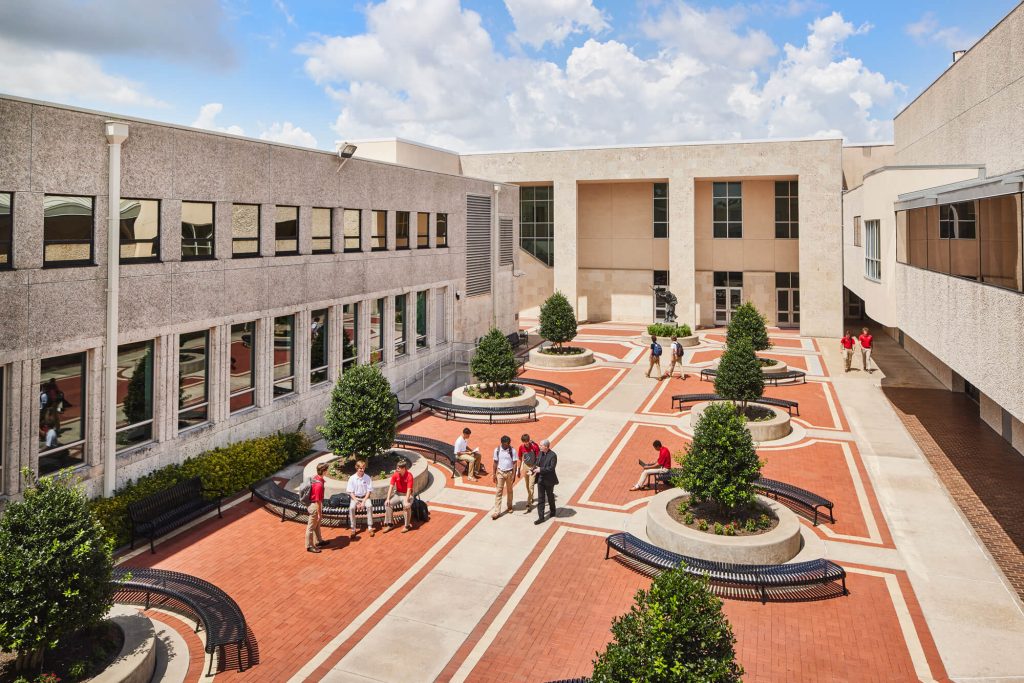Private schools, also known as independent schools, have long been a significant part of the global education system. Unlike public schools, which are government-funded, private schools operate independently and are funded primarily through tuition, donations, and endowments.
Many parents choose private schools for their children because they offer smaller class sizes, specialized curricula, and high academic standards. However, private education comes with a cost—both financially and in terms of accessibility. This article explores the advantages of private schooling and how independent education shapes student outcomes.
What Are Private Schools?

Private schools are educational institutions that function independently of government funding. They are managed by private organizations, religious institutions, or independent boards and typically require tuition fees for enrollment.
Types of Private Schools:
- Day Schools: Students attend during the day and return home in the evening.
- Boarding Schools: Students live on campus during the academic year.
- Religious Schools: Focus on religious education alongside general academics.
- Montessori and Waldorf Schools: Emphasize experiential and creative learning.
- Preparatory Schools: College-focused institutions that prepare students for higher education.
While private schools are often seen as elite institutions, they vary in size, philosophy, and affordability, catering to diverse student needs.
Advantages of Private Schools
Private schools are known for providing high-quality education, personalized attention, and extracurricular opportunities. Here’s a closer look at the key benefits:
1. Smaller Class Sizes and Individualized Attention
One of the most significant advantages of private schools is the low student-to-teacher ratio. Smaller class sizes allow:
- More one-on-one interactions between students and teachers.
- A personalized approach to learning, catering to individual strengths and weaknesses.
- Better classroom management, leading to increased student engagement knowledge.
Studies suggest that students in smaller classes perform better academically and are more likely to participate in discussions and extracurricular activities.
2. High Academic Standards and Rigorous Curriculum
Private schools often set high academic expectations and provide a challenging curriculum that prepares students for college and beyond. Many private institutions offer:
✔ Advanced Placement (AP) and International Baccalaureate (IB) programs.
✔ Specialized courses in arts, sciences, and foreign languages.
✔ Enrichment programs such as robotics, debate, and entrepreneurship.
Students in private school often achieve higher standardized test scores and have greater success in college admissions compared to their public school counterparts.
3. Greater Parental Involvement and Strong Community Engagement
Private schools encourage active parental participation in education through:
- Regular parent-teacher conferences.
- Volunteering opportunities.
- School-sponsored community events.
This close-knit environment fosters strong relationships between parents, teachers, and students, creating a sense of belonging and shared educational goals.
4. Qualified and Dedicated Educators
Private schools attract highly qualified teachers, often with advanced degrees in their fields. Additionally, many private schools provide professional development opportunities, allowing educators to stay updated on modern teaching strategies and curriculum advancements.
Because private school are not bound by government regulations on hiring, they can recruit teachers based on expertise and teaching philosophy rather than standardized qualifications.
5. Enhanced Extracurricular Opportunities
Private school place a strong emphasis on extracurricular activities, helping students develop skills beyond academics. These opportunities include:
- Competitive sports teams and state-of-the-art athletic facilities.
- Fine arts programs, including music, theater, and dance.
- Leadership programs such as Model UN, student government, and debate teams.
Participation in these activities fosters teamwork, leadership, and discipline, giving students a well-rounded education.
6. Emphasis on Character Development and Values
Many school, especially religious and preparatory institutions, incorporate moral and ethical education into their curriculum. This may include:
- Character education programs focusing on integrity, responsibility, and respect.
- Service-learning initiatives that encourage students to participate in community service.
- Religious instruction in faith-based schools that align education with spiritual development.
These values-based approaches help shape students into responsible and compassionate individuals.
7. College Preparation and Higher Education Success
Private school have a strong track record of preparing students for college. Their college counseling programs offer:
- Personalized guidance on college applications.
- SAT/ACT preparation and academic advising.
- Access to prestigious universities through strong alumni networks.
As a result, private school graduates often have higher college acceptance rates and are more likely to enroll in competitive programs.
Potential Drawbacks of Private Schools
While schools offer numerous benefits, there are also some challenges to consider:
1. High Tuition Costs
One of the biggest barriers to private education is affordability. Annual tuition fees can range from a few thousand dollars to over $50,000 for elite institutions. While scholarships and financial aid exist, private education remains out of reach for many families.
2. Limited Diversity
Some private school, particularly elite institutions, may lack socioeconomic, racial, and cultural diversity due to high tuition fees and selective admissions. This can limit students’ exposure to different perspectives and backgrounds.
3. Selective Admissions Process
Unlike public schools, private school can set their own admission criteria. Some may require:
- Entrance exams.
- Interviews with students and parents.
- Specific academic or athletic achievements.
This selectivity can make it difficult for students with learning differences or lower academic performance to gain admission.
4. Less Regulation and Oversight
Private school are not required to follow state-mandated curriculums or standardized testing. While this allows for innovation, it also means:
- There may be less accountability for academic outcomes.
- Curriculum quality can vary widely between schools.
5. Pressure to Excel
Many private school have rigorous academic and extracurricular expectations, which can lead to stress and burnout among students. The competitive environment may not be suitable for all learners.
Comparing Private Schools and Public Schools
| Factor | Private School | Public Schools |
|---|---|---|
| Funding | Tuition, donations, and endowments. | Government-funded (local, state, federal). |
| Class Size | Smaller class sizes, more individual attention. | Larger class sizes, less individualized learning. |
| Curriculum | More flexible, specialized programs (e.g., IB, AP). | State-mandated curriculum, standardized testing. |
| Extracurriculars | Extensive sports, arts, and leadership programs. | Varies by district; may have budget constraints. |
| Teacher Qualifications | Highly qualified, but not always state-certified. | State-certified teachers required. |
| Diversity | Less socioeconomic diversity due to tuition. | Greater diversity as schools are open to all. |
| College Prep | Strong focus on college admissions support. | Varies by school; college counseling available but may be limited. |
Is Private School the Right Choice?
Deciding whether to enroll a child in private school depends on several factors, including:
- Financial ability – Can your family afford tuition or secure scholarships?
- Academic goals – Does your child need a specialized curriculum or a rigorous academic environment?
- Classroom environment – Would smaller class sizes benefit your child’s learning style?
- Extracurricular interests – Does the school offer programs that match your child’s interests?
- Personal values – Do you prefer a school with religious or character-based education?
For some families, the advantages of private schooling outweigh the costs, while others may find public or charter schools a better fit.
Conclusion
Private schools offer a unique and highly personalized education experience, with advantages such as smaller class sizes, specialized curricula, strong college preparation, and extensive extracurricular activities. However, they also come with high costs, selective admissions, and potential limitations in diversity.
Ultimately, the best choice depends on a child’s individual needs and family circumstances. Whether private, public, or charter, the goal of any school should be to provide a high-quality education that prepares students for success in life. 🎓📚
From delicious recipes to expert entertaining tips, Decology is your go-to source for all things food and fun!



